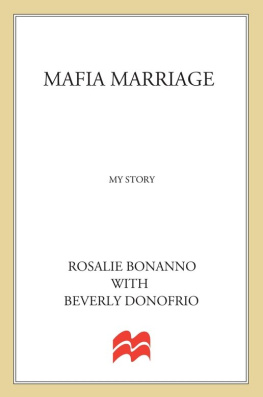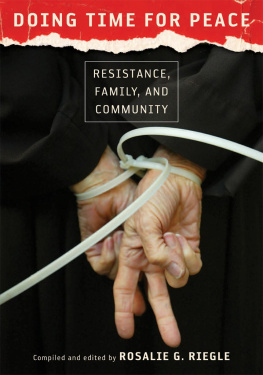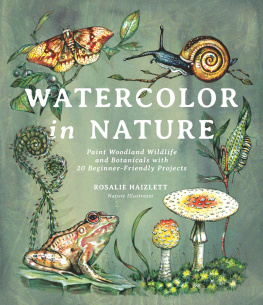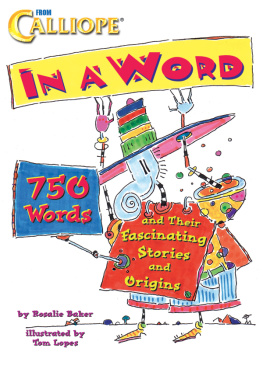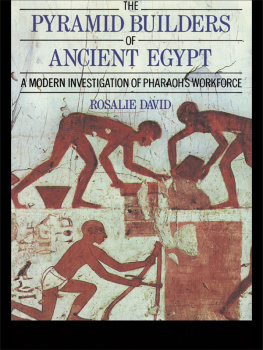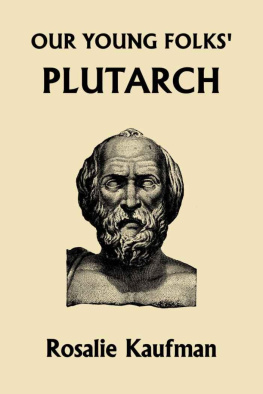Rosalie Ham - The Dressmaker
Here you can read online Rosalie Ham - The Dressmaker full text of the book (entire story) in english for free. Download pdf and epub, get meaning, cover and reviews about this ebook. year: 2000, publisher: Duffy & Snellgrove, genre: Prose. Description of the work, (preface) as well as reviews are available. Best literature library LitArk.com created for fans of good reading and offers a wide selection of genres:
Romance novel
Science fiction
Adventure
Detective
Science
History
Home and family
Prose
Art
Politics
Computer
Non-fiction
Religion
Business
Children
Humor
Choose a favorite category and find really read worthwhile books. Enjoy immersion in the world of imagination, feel the emotions of the characters or learn something new for yourself, make an fascinating discovery.

- Book:The Dressmaker
- Author:
- Publisher:Duffy & Snellgrove
- Genre:
- Year:2000
- ISBN:9781875989706
- Rating:5 / 5
- Favourites:Add to favourites
- Your mark:
- 100
- 1
- 2
- 3
- 4
- 5
The Dressmaker: summary, description and annotation
We offer to read an annotation, description, summary or preface (depends on what the author of the book "The Dressmaker" wrote himself). If you haven't found the necessary information about the book — write in the comments, we will try to find it.
The Dressmaker — read online for free the complete book (whole text) full work
Below is the text of the book, divided by pages. System saving the place of the last page read, allows you to conveniently read the book "The Dressmaker" online for free, without having to search again every time where you left off. Put a bookmark, and you can go to the page where you finished reading at any time.
Font size:
Interval:
Bookmark:
About author
Rosalie Ham was brought up in the Riverina and now lives in Brunswick. Sacrificing a promising career as a rouseabout, she has gone on to write several plays for stage and radio that have been staged in Melbourne.
This is her first novel.
THE DRESSMAKER
Rosalie Ham
Duffy & Snellgrove
Sydney
First published in 1996 by Duffy & Snellgrove
PO Box 177 Potts Point NSW 1335 Australia
info@duffyandsnellgrove.com.au
Distributed by Pan Macmillan
Rosalie Ham 2000
Cover design by Yolande Gray
Typeset by Cooper Graphics
Digital conversion by Aleksandr Tuza, alektuza.com
eISBN 9780987082039
Visit our website: www.duffyandsnellgrove.com.au
The author would like to thank relevant tutors at RMIT Professional Writing and Editing course, Melbourne. Also, most especially, Gail MacCallum, Mercy OMeara, Fern Fraser, Patricia Cornelius, Crusader Hillis, Natalie Warren and Ian.
The sense of being well-dressed gives a feeling of inward tranquillity which religion is powerless to bestow.
Miss C.F. Forbes quoted by Ralph Waldo Emerson in Social Aims
Travellers crossing the wheat-yellow plains to Dungatar would first notice a dark blot shimmering at the edge of the flatness. Further down the asphalt, the shape would emerge as a hill. On top of The Hill sat a shabby brown weatherboard, leaning provocatively on the grassy curve. It looked as if it was about to careen down, but was roped to a solid chimney by thick-limbed wisteria. When passengers approaching Dungatar by train felt the carriage warp around the slow southward curve, they glanced up through the window and saw the tumbling brown house. At night, light from the house could be seen from the surrounding plains a shaky beacon in a vast, black sea, winking from the home of Mad Molly. As the sun set, The Hill cast a shadow over the town that stretched as far as the silos.
One winter night, Myrtle Dunnage searched for the light from her mothers house through the windscreen of a Greyhound bus. Recently she had written to her mother but when she received no reply, she summoned the courage to phone. The curt voice at the telephone exchange had said, Molly Dunnage hasnt had a phone on for years, she wouldnt know what a phone was.
I wrote, said Tilly, she didnt reply. Perhaps she didnt get my letter?
Old Mad Molly wouldnt know what to do with a letter either, came the retort.
Tilly decided she would go back to Dungatar.
I
Gingham
A cotton fabric varying in quality depending on the type of yarn, fastness of colour and weight. Can be woven into a range of patterns. A durable fabric if treated appropriately. Various uses, from grain bags and curtains to house dresses and suits.
Fabrics for Needlework1
Sergeant Farrat patted his policemans cap, picked a thread from his lapel and saluted his neat reflection. He strode to his shiny police car to begin his evening drive around, knowing all was well. The locals were subdued and the men asleep, for there was a chance of victory the next day on the football field.
He stopped his car in the main street to peruse the buildings, silver-roofed and smoky. Fog tiptoed around them, gathering around gateposts and walls, standing like gossamer marquees between trees. Muffled conversation wandered from the Station Hotel. He studied the vehicles nosing the pub: the usual Morris Minors and Austins, a utility, Councillor Pettymans Wolseley and the Beaumonts imposing but tired Triumph Gloria.
A Greyhound bus rumbled and hissed to a stand-still outside the post office, its headlights illuminating Sergeant Farrats pale face.
A passenger? he said aloud.
The door of the bus swung open and the glow from the interior beam struggled out. A slim young woman stepped lightly into the fog. Her hair was lush about her shoulders, and she wore a beret and an unusually cut overcoat. Very smart, thought the sergeant.
The driver pulled a suitcase from the luggage boot and carried it to the post office porch, leaving it in the dark corner. He went back for another, then another, and then he pulled something else out something with a domed cover with Singer printed in gold letters across its side.
The passenger stood holding it, looking over to the creek then up and down the street.
Oh my pretty hat, said Sergeant Farrat, and shot from his car.
She heard the car door slam so turned on her heel and headed west, towards The Hill. Behind her the bus roared away, the tail-lights shrinking, but she could hear the footsteps approaching.
Myrtle Dunnage, my, my.
Myrtle quickened her pace. So did Sergeant Farrat. He inspected her fine boots Italian? he wondered and her trousers, definitely not serge.
Myrtle, let me help you.
She walked on, so the sergeant lunged, wrenching the domed box from her hand, spinning her around. They stood and stared at each other, the white air swirling around them. Tilly had grown into a woman while Sergeant Farrat had aged. He raised one pale hand to his mouth in embarrassment, then shrugged and headed for his car with the luggage. When hed thrown the last of Myrtles suitcases onto the back seat, he opened the passenger door for her and waited. When she was in he swung the car about and headed east. Well take the long way home, he said. The knot in the pit of Tillys stomach hardened.
They glided through the fog and as they rounded the football oval, Sergeant Farrat said, Were third from the top of the ladder this year.
Tilly was silent.
Youve come from Melbourne have you?
Yes, she answered flatly.
Home for long?
Not sure.
They drove back through the main street. When they passed the school hall she heard the childhood cries of Friday afternoon softball games and shrieks and splashes from swimming carnivals at the creek. When Sergeant Farrat turned the library corner towards The Hill, she smelled the librarys waxed lino floor, and saw a flash of wet blood on the dry grass outside. Memories of being driven to the bus stop all those years ago by the same man rose up, and the knot in her stomach turned.
Finally the police car ground its way to the top of The Hill and stopped. She sat looking at her old home while the sergeant looked at her. Little Myrtle Dunnage had alabaster skin and her mothers eyes and hair. She seemed strong, but damaged.
Does anyone know youre coming, Myrtle? asked the sergeant.
My name is Tilly, she said. Everyone will know soon enough.
She turned to look at Sergeant Farrats expectant face in the foggy moonlight. How is my mother? she asked.
He opened his car door. Your mother doesnt get out these days, he said, and climbed from the car. The fog resting around the veranda moved like frills on a skirt as the sergeant moved through it with Tillys suitcases. He held the heavy dome. Youve a lovely sewing machine, Tilly, he said.
Im a seamstress and dressmaker, Sergeant Farrat. She opened the back door.
He clapped his hands. Excellent!
Thanks for the lift. She closed the back door on him.
As he drove away, Sergeant Farrat tried to remember the last time hed visited Mad Molly. He hadnt seen her for at least a year, but knew Mae McSwiney kept an eye on her. He smiled. A dressmaker!
Mollys house was dank and smelled like possum piss. Tilly felt along the dusty wall for the light switch and turned it on, then moved through the kitchen to the lounge room, past the crusty old lounge suite to the fire-place. She put her hand to the ash. It was stone cold. She made her way over to her mothers bedroom door, turned the knob and pushed. A dull lamp glowed in the corner by the bed.
Mum?
A body stirred under piled blankets. A skeleton head wearing a tea cosy turned on a grubby kapok pillow. The mouth gaped like a charcoal hole, and sunken eyes gazed at her.
Font size:
Interval:
Bookmark:
Similar books «The Dressmaker»
Look at similar books to The Dressmaker. We have selected literature similar in name and meaning in the hope of providing readers with more options to find new, interesting, not yet read works.
Discussion, reviews of the book The Dressmaker and just readers' own opinions. Leave your comments, write what you think about the work, its meaning or the main characters. Specify what exactly you liked and what you didn't like, and why you think so.

